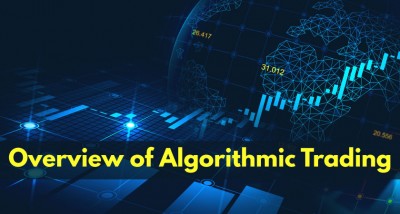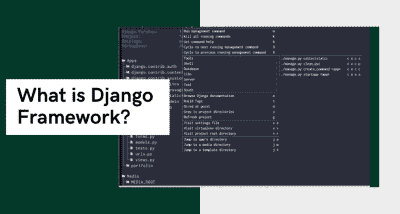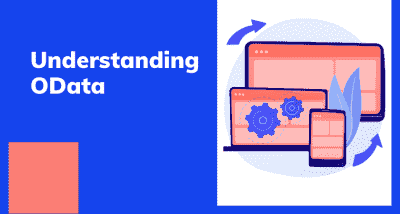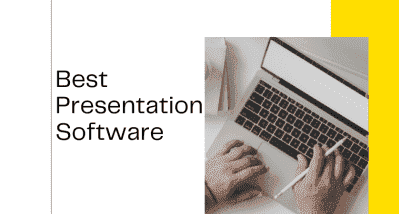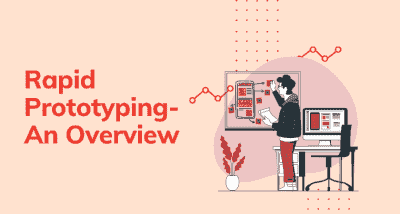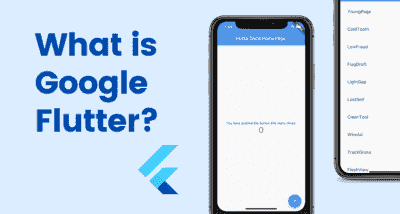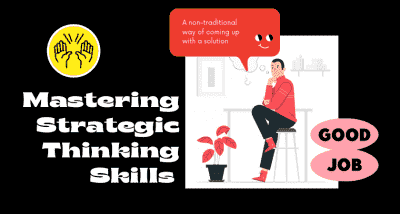What is Django Framework?
- Amruta Bhaskar
- Jul 14, 2021
- 0 comment(s)
- 7066 Views
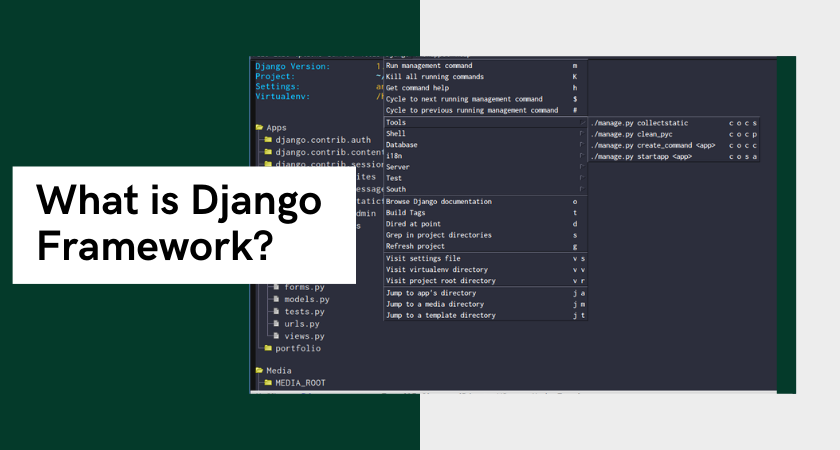
Django is an open-source python web framework used for rapid development, pragmatic, maintainable, clean design, and secures websites. A web application framework is a toolkit of all components need for application development. The main goal of the Django framework is to allow developers to focus on components of the application that are new instead of spending time on already developed components. It is fully featured than many other frameworks on the market. It takes care of a lot of hassle. Involved in web development; enables users to focus on developing components needed for their application.
Django was initially developed between 2003 and 2005 by a web team who were responsible for creating and maintaining newspaper websites. After creating a number of sites, the team began to factor out and reuse lots of common code and design patterns. This common code evolved into a generic web development framework, which was open-sourced as the "Django" project in July 2005.
Django helps you write software that is:
· Complete
Django follows the "Batteries included" philosophy and provides almost everything developers might want to do "out of the box". Because everything you need is part of the one "product", it all works seamlessly together, follows consistent design principles, and has extensive and up-to-date documentation.
· Versatile
Django can be (and has been) used to build almost any type of website — from content management systems and wikis, through to social networks and news sites. It can work with any client-side framework, and can deliver content in almost any format (including HTML, RSS feeds, JSON, XML, etc). The site you are currently reading is built with Django!
Internally, while it provides choices for almost any functionality you might want (e.g. several popular databases, templating engines, etc.), it can also be extended to use other components if needed.
· Secure
Django helps developers avoid many common security mistakes by providing a framework that has been engineered to "do the right things" to protect the website automatically. For example, Django provides a secure way to manage user accounts and passwords, avoiding common mistakes like putting session information in cookies where it is vulnerable (instead cookies just contain a key, and the actual data is stored in the database) or directly storing passwords rather than a password hash.
A password hash is a fixed-length value created by sending the password through a cryptographic hash function. Django can check if an entered password is correct by running it through the hash function and comparing the output to the stored hash value. However due to the "one-way" nature of the function, even if a stored hash value is compromised it is hard for an attacker to work out the original password.
Django enables protection against many vulnerabilities by default, including SQL injection, cross-site scripting, cross-site request forgery and clickjacking (see Website security for more details of such attacks).
· Scalable
Django uses a component-based “shared-nothing” architecture (each part of the architecture is independent of the others, and can hence be replaced or changed if needed). Having a clear separation between the different parts means that it can scale for increased traffic by adding hardware at any level: caching servers, database servers, or application servers. Some of the busiest sites have successfully scaled Django to meet their demands (e.g. Instagram and Disqus, to name just two).
· Maintainable
Django code is written using design principles and patterns that encourage the creation of maintainable and reusable code. In particular, it makes use of the Don't Repeat Yourself (DRY) principle so there is no unnecessary duplication, reducing the amount of code. Django also promotes the grouping of related functionality into reusable "applications" and, at a lower level, groups related code into modules (along the lines of the Model View Controller (MVC) pattern).
· Portable
Django is written in Python, which runs on many platforms. That means that you are not tied to any particular server platform, and can run your applications on many flavours of Linux, Windows, and Mac OS X. Furthermore, Django is well-supported by many web hosting providers, who often provide specific infrastructure and documentation for hosting Django sites.
Below is the list of the top 10 reasons why Django framework is used:
1. Django is time-tested
It’s been 13 years since Django started developing its framework and the first release of open source commit as it was under development quite a long time before release. During these years, it had many releases; some of them have new features, other releases focus on security enhancements etc. Django is the first framework to respond to new issues and vulnerabilities and alter other frameworks to make patches to frameworks. The latest release of it is focusing on new features and boundary case problems.
2. Application Development
Django was developed by the online news operation team with the aim to create web applications using the Python programming language. The framework has templates, libraries, and APIS, which work together. In general, applications developed using Django can be upgraded with minimal cost, changes, and additions, and it makes a lot of web development easier.
3. Easy to Use
Django uses Python programming language, which is a popular language in 2015, and now most choosing language by programmers who are learning to code and applications of Django framework is widely used as it is free and open-source, developed and maintained by a large community of developers. It means we can find answers to the problems easily using Google.
4. Operating System Dependent
Django framework runs on any platform like PC, Windows, Mac, Linux etc. It provides a layer between the developer and database called ORM (object-relational mapper), which makes it possible to move or migrate our applications to other major databases with few lines of code change.
5. Excellent Documentation for real-world application
Applications of Django has one of the best documentation for its framework to develop different kinds of real-world applications, whereas many other frameworks used an alphabetical list of modules, attributes, and methods. This is very useful for quick reference for developers when we had confusion between two methods or modules but not for fresher’s who are learning for the first time. It’s a difficult task for Django developers to maintain the documentation quality as it is one of the best open-source documentation for any framework.
6. Scalable and Reliable
As Django is a well-maintained web application framework and widely used across the industries, so cloud providers taking all measures to provide support to run Django applications easily and quickly on cloud platforms. It means, once Django applications deployed then they can be managed by an authorized developer with a single command in a cloud environment. As Django developers are working in the same development environment for a long time so they will grow and expertise in these areas which means applications developed, websites created are getting better day by day, more functional, efficient and reliable.
7. Community Support
Django community is one of the best communities out there as it is governed by the Django software foundation, which had some rules like for event there is a code of conduct. Django communities will have IRC and mailing list most welcome; even it may have bad appeals, it will rectify immediately. Django offers stability, packages, documentation and a good community.
8. DRY – Don’t repeat yourself
Django framework follows the don’t repeat yourself principle as it concentrates on getting the most out of each and every line of code by which we can spend less time on debugging or code re-orientation etc. In general DRY code means all uses of data change simultaneously rather than a need to be replicated, and its fundamental reason to use of variables and functions in all programming.
9. Batteries of Django
Django framework has everything to build a robust framework with main features as below:
- Template layers,
- Forms, development process,
- Views layers, security,
- Model layers, python compatibility,
- Localization, performance, and optimization
- Geographic framework, common tools for web application development
- Other core functionalities required for websites.
As Django can be used to build any type of website with the help of its frameworks like content management, Wikipedia pages, social networking applications, chat applications, and websites like Mozilla, Instagram, Pinterest, BitBucket etc. Django can work with any client-server application and able to deliver content in any form (HTML, Text, JSON, XML, RSS etc.)
10. Django Benefits
With the uses of the Django framework, we can develop and deploy web applications within hours as it takes care of much of the hassle of web development. Django is very fast, fully loaded such as it takes care of user authentication, content administration, security as Django takes it very seriously and helps to avoid SQL injection, cross-site scripting etc. and scalable as applications can be scalable to meet high demands and used to build any type of applications that’s why we call it as a versatile framework. We can build different applications from content management to social networking websites using the Django framework. It offers lots of resources and good documentation, which helps new learners to learn and experienced people for reference.

